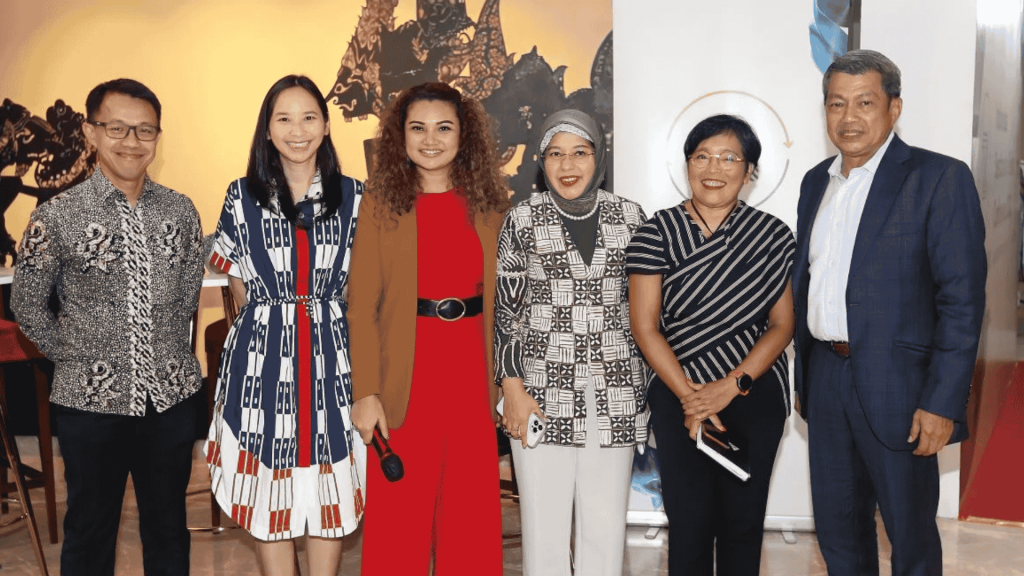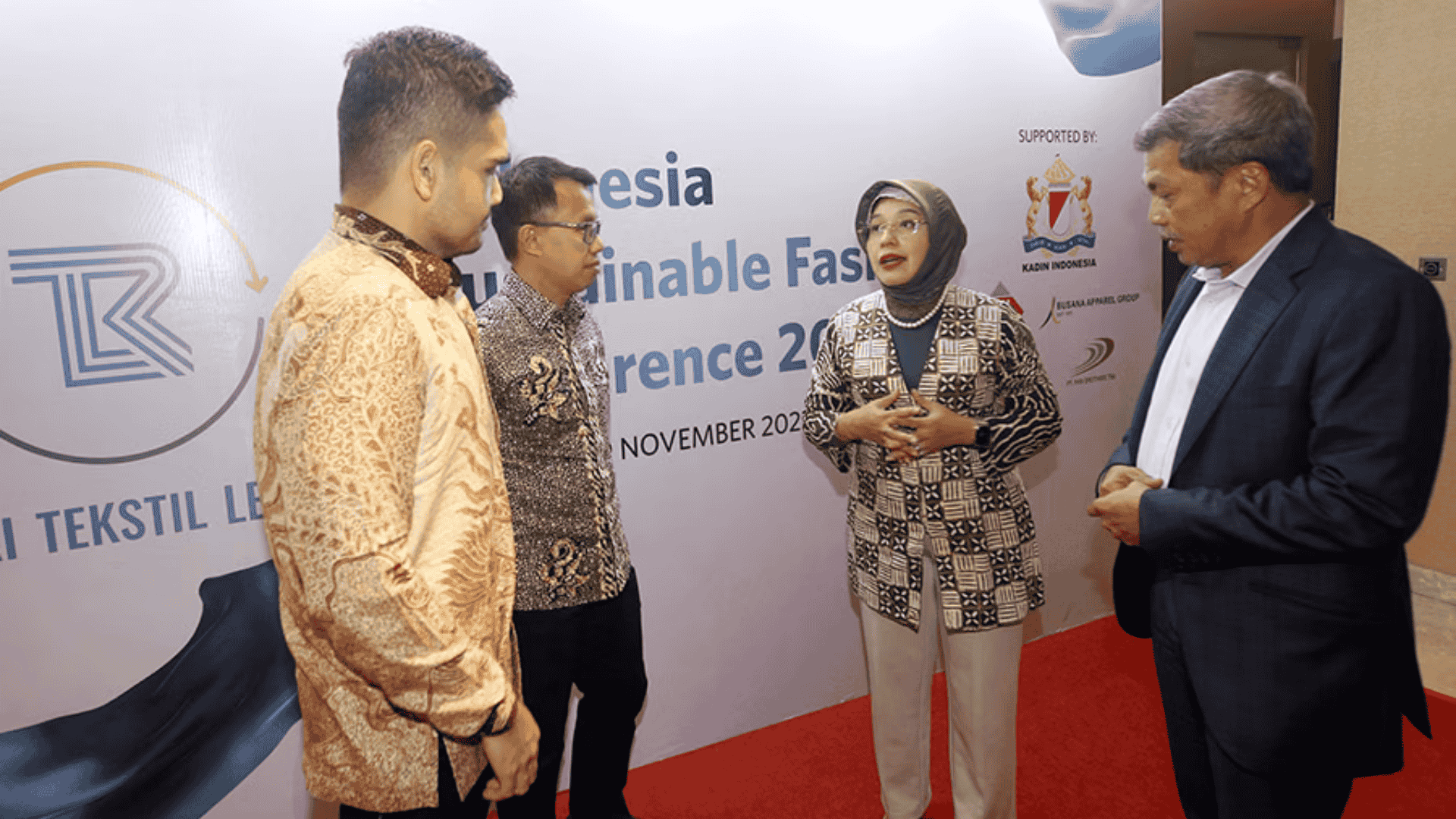Jakarta, 29 November 2022 — Rantai Tekstil Lestari (RTL), a non-profit organization dedicated to advancing sustainable textiles in Indonesia, continues to foster strong collaborations to accelerate the transformation of the country’s textile and fashion industry toward sustainability and circularity.
The Importance of Textile Industry in Indonesia
The textile and apparel sector is currently one of Indonesia’s priority industries. According to Statistics Indonesia (BPS), the industry grew by 13.74% in the second quarter of 2022, reaching IDR 35.17 trillion compared to IDR 30.92 trillion in the same period the previous year. This data underscores the sector’s vital role in shaping an environmentally friendly and circular industrial ecosystem.
During the Indonesia Sustainable Fashion Conference 2022 held in Jakarta, RTL Chairperson Basrie Kamba highlighted the shift in the global fashion market, worth USD 1.3 trillion annually, toward sustainable and circular development. Indonesia remains a key global textile producer with USD 13 billion in exports last year.
“Reforming the circular supply chain and adopting circular economy practices in the global textile and apparel industry will present both challenges and opportunities for Indonesian players”
Basrie Kamba, Chair of RTL

The Roadmap for Indonesia’s Textile Industry
Chairman of the Indonesian Chamber of Commerce and Industry (KADIN) Arsjad Rasjid emphasized the need for sustainability principles to be embedded across all stages of textile and fashion operations. This aligns with the KADIN Net Zero Hub, an ecosystem that connects stakeholders in the energy transition to reduce emissions.
To realize a sustainable fashion ecosystem, RTL is collaborating with various partners, including the Ministry of National Development Planning (Bappenas). Amalia Adininggar Widyasanti, Deputy Minister for Economic Affairs at Bappenas, stated that it is time for the fashion industry to have regulations covering all stages of its processes. She confirmed Bappenas’ commitment to developing a masterplan for Indonesia’s textile sector, including a roadmap for a sustainable textile and fashion industry.
“Through collaboration, we can create a roadmap aligned with the SDGs — with a thematic, holistic, integrated, and spatial approach”
Amalia Adininggar Widyasanti, Deputy Minister for Economic Affairs at Bappenas
The Rise of Sustainable Fashion in Indonesia
Sustainable fashion commitments are gradually emerging within Indonesia’s fashion industry. Michelle Tjokrosaputro, General Secretary of the Indonesia Textile Association, noted that several domestic garment factories have advanced their technology, enabling significant savings in water, electricity, and energy use.
However, many producers still face challenges in balancing regulatory compliance with technology upgrades, particularly due to infrastructure limitations. This uneven access slows down the transition toward sustainability.
On the consumer side, awareness of sustainable fashion remains inconsistent. Sustainable fashion should not be seen as a fleeting trend but embraced as a lifestyle. For this to happen, easy-to-access education and information are essential.
Anya Sapphira, Board of Supervisor at RTL, added that consumer education can start with small, everyday elements — such as reading clothing care labels and understanding fabric materials.
“Sustainable fashion is not only about production processes; it’s also about behavior — the consumption patterns of every consumer. These patterns are key to shaping Indonesia’s commitment to sustainable fashion”
Anya Sapphira, Board of Supervisor of RTL
About the Event
The Indonesia Sustainable Fashion Conference 2022 served as a platform for dialogue between government representatives, industry leaders, and sustainability advocates. On the sidelines of the event, RTL Chairperson Basrie Kamba engaged in discussions with Amalia Adininggar Widyasanti (Deputy Minister for Economic Affairs, Bappenas), Fitrian Ardiansyah (Board of Management, RTL), and Yudha Amdan (General Secretary, RTL), reaffirming RTL’s mission to unite stakeholders in building a greener, more circular textile industry for Indonesia.


